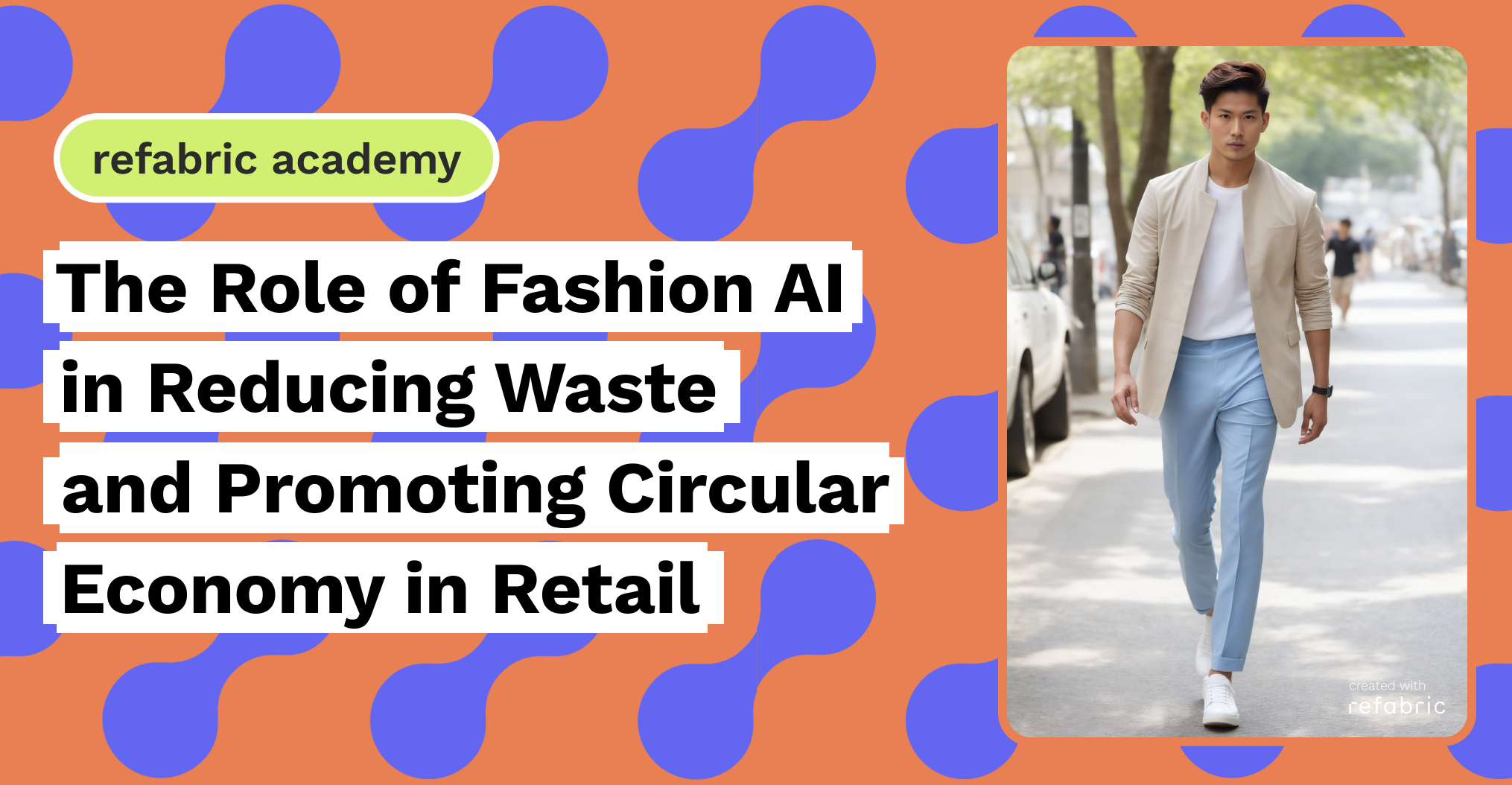Fashion AI is at the forefront of the transformation in the dynamic world of fashion, where sustainability has become more than just a buzzword—it’s a fundamental necessity. With increasing awareness of the environmental impact of the fashion industry, brands are seeking innovative ways to reduce waste and promote a circular economy. Fashion AI plays a crucial role in supporting waste reduction and circular economy initiatives while ensuring compliance with sustainability regulations.
Fashion AI and Waste Reduction
One of the most pressing issues in the fashion industry is the significant amount of waste generated through overproduction and unsold inventory. Traditional manufacturing processes often rely on speculative production, leading to surplus stock that eventually ends up in landfills. Fashion AI addresses this problem through data-driven demand forecasting.
By analyzing vast amounts of data, including historical sales figures, current trends, and consumer behavior, AI can accurately predict demand for specific products. This allows brands to produce only what is needed, significantly reducing overproduction and minimizing waste. For example, AI-powered platforms can analyze social media trends to gauge upcoming fashion preferences, enabling brands to align their production with actual consumer demand.
Enhancing Efficiency in the Supply Chain
AI’s impact on the supply chain is another critical factor in waste reduction. Traditional supply chains often suffer from inefficiencies that lead to excess inventory and wasted resources. AI optimizes supply chain operations by providing real-time insights into production, distribution, and inventory management.
AI-driven supply chain management systems can track inventory levels, predict stock shortages, and automatically reorder materials as needed. This ensures that resources are used efficiently and reduces the likelihood of overstocking. Moreover, AI can optimize logistics and transportation routes, cutting down on fuel consumption and reducing the carbon footprint of fashion brands.
Circular Economy and Fashion AI
The concept of a circular economy revolves around the idea of designing out waste and keeping products and materials in use for as long as possible. Fashion AI supports this concept by enabling sustainable practices such as recycling, upcycling, and resale.
One of the key applications of AI in promoting a circular economy is in the area of textile recycling. AI-powered sorting systems can identify and categorize different types of fabrics with high precision, making the recycling process more efficient. These systems use machine learning algorithms to recognize patterns and compositions of textiles, ensuring that materials are correctly sorted and reused.
Additionally, AI facilitates upcycling by helping designers create new products from existing materials. AI algorithms can analyze the characteristics of discarded textiles and suggest innovative ways to repurpose them. This not only reduces waste but also encourages creativity and innovation in fashion design.
The resale market is another area where AI is making a significant impact. AI-powered platforms can authenticate pre-owned items, ensuring their quality and authenticity. These platforms use machine learning to detect counterfeit products, providing consumers with confidence in their purchases and promoting a sustainable shopping culture.
Compliance with Sustainability Regulations
As governments and regulatory bodies worldwide impose stricter sustainability regulations, fashion brands must adapt to stay compliant. Fashion AI assists brands in navigating these regulations by providing insights and tools for sustainable practices.
Fashion AI can monitor and analyze a brand’s entire supply chain to ensure compliance with environmental standards. For instance, AI systems can track the origin of raw materials, ensuring they come from sustainable sources. Additionally, AI can help brands adhere to regulations regarding labor practices, ensuring ethical production methods.
Moreover, AI-driven reporting tools can generate comprehensive sustainability reports, showcasing a brand’s efforts and achievements in waste reduction and circular economy practices. These reports not only help brands stay compliant but also enhance their reputation among environmentally conscious consumers.
To wrap up, fashion AI is revolutionizing the industry by reducing waste and promoting a circular economy. Through precise demand forecasting, efficient supply chain management, and innovative recycling and upcycling practices, AI helps fashion brands minimize their environmental impact. Furthermore, AI ensures compliance with sustainability regulations, fostering a more transparent and ethical industry. As technology continues to evolve, the potential for fashion AI to drive sustainability initiatives and support a circular economy is limitless, promising a greener future for the fashion industry.
